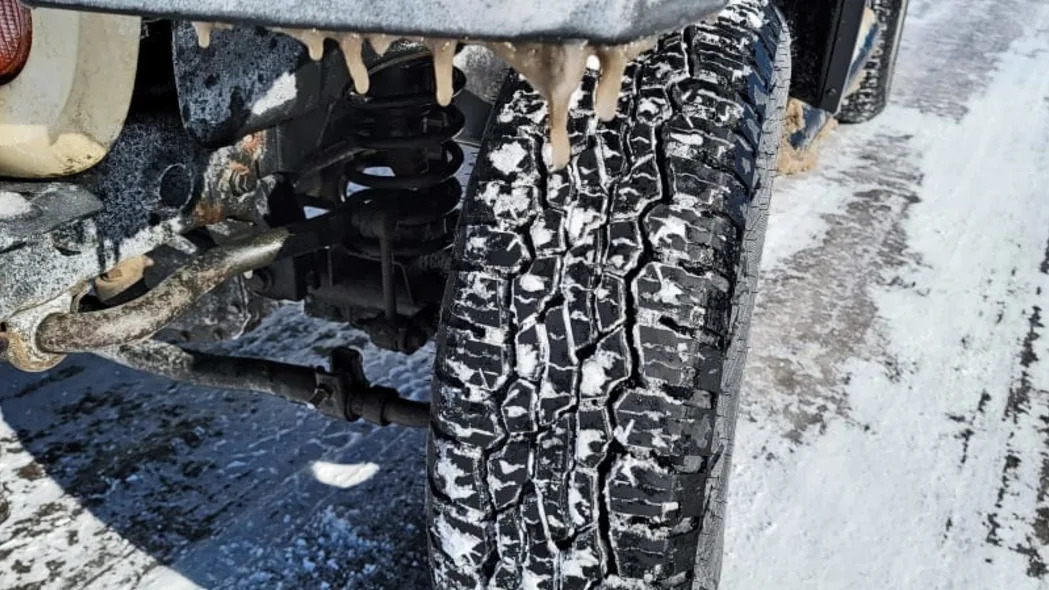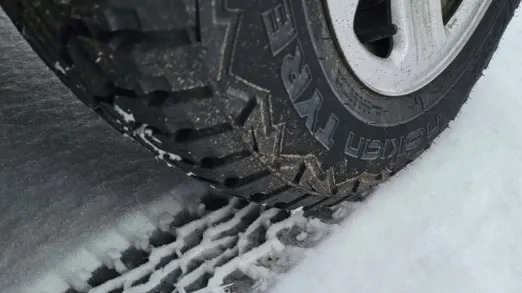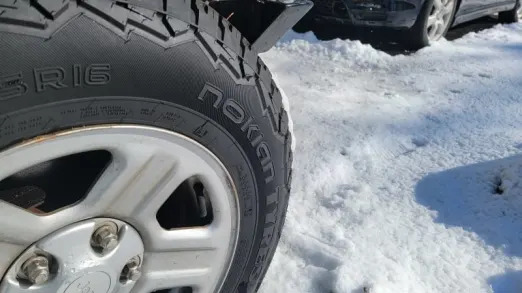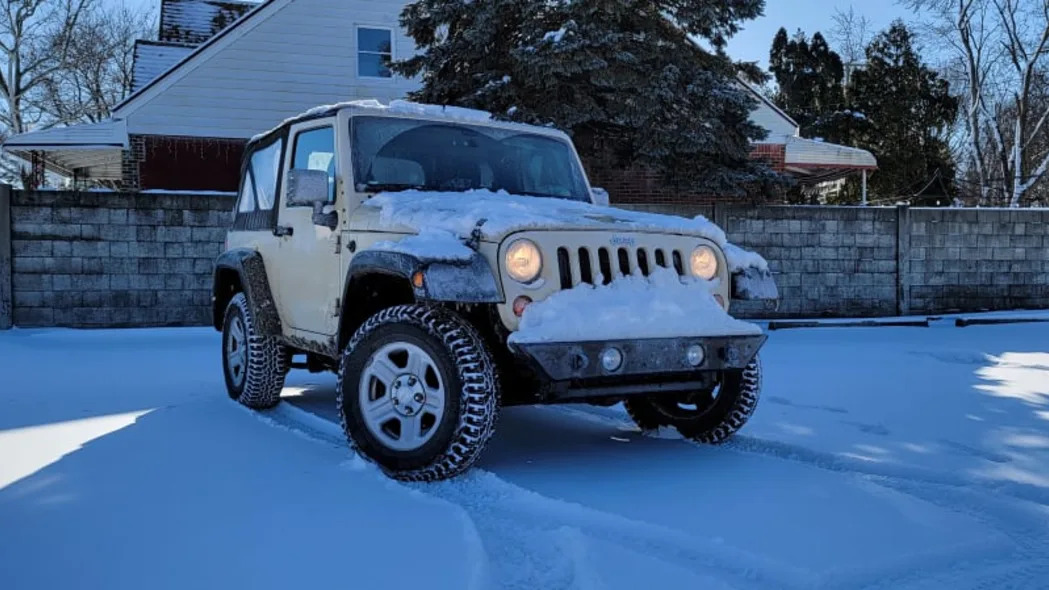Nokian Outpost AT long-term wrap-up: Decent tires, snow or no

Autoblog may receive a share from purchases made via links on this page. Pricing and availability are subject to change.
Two years ago, Nokian offered us a set of its then-new, severe-snow-rated Outpost AT SUV tires. Lacking an appropriate long-term vehicle on which to test them, however, we were initially going to decline; but after checking the available sizes, I realized they’d fit my 2011 Wrangler. After briefly shopping around, I found a set of reasonably priced take-off Sport wheels to mount them on and let Nokian know we were game to try out its new snow-rated all-terrains.
But after a promising start, Father Winter packed up and left southeastern Michigan. It has snowed enough to warrant the use of snow tires fewer than a half-dozen times since my first winter on the Nokians. And yes, in this case, I’m specifically calling the Outposts out as snow tires rather than winter tires. They’re severe snow-rated all-terrains, which inherently makes them all-season tires; they won’t suffer from abnormal wear if run year-round, which is fortunate because this set has spent most of its service life tooling around in 50-plus-degree weather.
What now passes for a snowstorm in southeast Michigan (March, 2023).
Fortunately, this otherwise uneventful winter saw fit to produce one genuinely decent snowstorm. The drifting snow varied in depth from just an inch or two in places to as much as 6-8 inches in others — certainly not a noteworthy accumulation for an area that has a long, complicated relationship with the snowy season, but plenty enough for some tire testing.
Put simply, my Wrangler is not a great winter vehicle. 4WD is nice, sure, but my 2-door JK’s short wheelbase gives it the stability of a frat pledge on a bender and the rudimentary traction control often does more harm than good. Then there are the open diffs. It’s a cheap Jeep; I don’t know what else to tell you.
Leaving it in 2WD high invites a one-wheel peel at stop lights, but with judicious use of the throttle, it’s perfectly drivable. The brakes don’t care how many wheels you can power at once, so with the Outposts on in 2WD, I’m over-braked and under-throttled. It’s slow going at times, especially if I’m pointing uphill at a red light, but it beats the heck out of trying to do the same thing without snow tires.



As a general rule of thumb, if I can get around in 2WD, I leave it there, but that doesn’t make for a very informative test, now does it? So 4-high it is, and it’s basically just easy mode. Don’t get me wrong; nothing will make this Jeep “fun” to drive in the strictest sense, but it’s a lot less nerve-wracking to pull away from a stoplight in rush hour traffic when you can actually put some power down. This is Michigan, after all. Sun or snow, we gotta go.
But the Outpost’s greatest strength is its flexibility. There’s virtually no penalty to running this tire year-round. Winter compounds tend to harden and grip less reliably in the summer, often becoming noisier and wearing faster to boot. The flip side of course is that even a snow-rated all-terrain tire is inherently a comprise compared to a proper set of winter tires, but if you need (or just want) an all-terrain or simply don’t want to mess with tire swapping, the Outpost is a far better compromise than a knobby tire that isn’t “three-peak” rated.
And I experienced no drawbacks running the Nokians in the summer. The set I put on the Wrangler ran much narrower than the Bridgestone Duelers I have on my summer wheels but offer just as much dry grip. The Bridgestones are significantly heavier too. And with tires this big, you notice. The Outpost AT is nearly 15 pounds lighter than a Bridgestone size-for-size, so we’re talking about 50-plus pounds saved in unsprung weight, and for what?

I’ve had no complaints about the Outpost AT’s performance in either warm weather or cold. The one thing that never materialized was a snowy trail drive, but the weather never cooperated long enough to offer us the opportunity to test the Outpost back-to-back against a similar A/T. Could be worse; I could have moved to Michigan for the ice fishing.
So long have we stretched this evaluation that Nokian has technically discontinued the tire — yes, Nokian killed a brand-new tire just a couple years after launching it. But it’s not as tawdry as it appears; the Outpost AT is now the Outpost nAT. While it does incorporate some minor revisions, the defining difference is its country of manufacture. The nAT is produced in the USA; the AT? Well, let’s just say Nokian’s launch timing was especially poor. After a brief interruption in supply, the Outpost nAT appears to be arriving at dealers.





